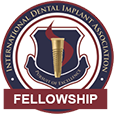Infant Teething Remedies: What Might Help—And What to Avoid
August 30th, 2023

Some lucky babies wake one morning displaying a brand new tooth to the complete surprise of their unsuspecting parents! But your happy baby is irritable and drooling. Or your hearty eater doesn’t feel like finishing her food. Perhaps she finds it hard to go to sleep when she’s usually nodded off before you finish the first lullaby. A small number of children suffer little or no discomfort teething, but for the majority of babies who do, here are some helpful ways to ease their teething pain.
- Massage--Rubbing your baby’s gums with a clean finger or piece of gauze—gentle pressure is all you need. And do be careful of your fingers once those teeth start coming in!
- Chewing—there are many colorful and easy to grasp teething toys available, including BPA-free models.
- Cool Relief—Cool a solid teether in the refrigerator to help ease discomfort. Placing a teething ring in the freezer is not recommended, as extreme cold can be damaging to little mouths and gums.
- Comfort Food—If your baby is eating solid foods, try cold applesauce or other purees.
- Skin Care—Drooling is often part of the teething process, but try to keep your child’s face free from rash and chaffing by wiping with a clean cloth when necessary.
And while you are trying to keep your baby comfortable, also be sure to keep her safe!
- Know what your baby is putting into her mouth. All teething items should be non-toxic and free of harmful chemicals. Teethers filled with fluids may break or leak, so a solid toy is best.
- Make teething items size-appropriate. Avoid anything small or breakable that might present a choking hazard.
- Over-the-counter gels and liquids containing benzocaine, meant to reduce pain in the gums and mouth, may on rare occasion lead to serious health conditions in small children. Always check with Dr. DeCasperis or your pediatrician before buying an over-the-counter teething medication for your baby.
For many babies, teething can be a long and sometimes difficult process. If there is anything we can do to help you and your baby in this journey, please give our Lebanon, NJ office a call.









